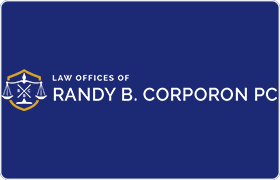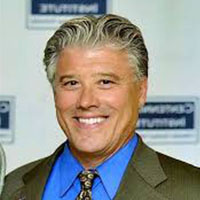 Denver Criminal Lawyers, Colorado
Denver Criminal Lawyers, Colorado
Sponsored Law Firm
-
 x
x

Click For More Info:
-
Law Offices of Randy B. Corporon PC
2821 S. Parker Road Suite 555 Aurora, CO 80014» view mapCriminal Clients First, Excellence Always!
You owe it to yourself and your loved ones to be represented by an experienced, high-quality attorney, with a track record of proven success.
800-976-8531
Sponsored Lawyers
1-10 of 67 matches
Criminal, DUI-DWI, Traffic
The attorneys at Lonn Heymann Law Firm, P.C. have years of experience in both civil and criminal cases. We bring that experience to bear for every case, creating a solid foundation for our clients’ defense. Our many years of experience will put us a step ahead in the case and allow us to create the best arguments for every scenario.
(more)Criminal, DUI-DWI, Car Accident, Wrongful Death, Lawsuit & Dispute
Mark E. Kraynak is an experienced criminal defense lawyer. Mark represents people charged with DUI/DWAI felonies, misdemeanors as well as lesser charges. Also, auto wrecks and personal injury and some general civil litigation.
(more)Criminal, Divorce & Family Law, Lawsuit & Dispute, Personal Injury
Peter Menges received his Juris Doctorate from the University of Colorado School of Law in 1997. He also received a Bachelors of Business Administration from the University of Massachusetts at Amherst in 1997, where he graduated cum laude. Mr. Menges spent his first five years of practice as a Trial Attorney with the Denver Office of The Office of the Colorado Public Defender. Mr. Menges opened The Law Office of Peter D. Menges, P.C. in January of 2003 and has been exclusively in private practice ever since. Mr. Menges has extensive trial experience. Mr. Menges has personally handled over a hundred trials. He has tried cases in Federal District Court, Colorado State District Court in numerous jurisdictions, County Court cases in numerous jurisdictions, Municipal Court matters in numerous jurisdictions, and Administrative Hearings in a number of forums. Mr. Menges has also handled Arbitrations and Mediations in civil cases. In the Federal Criminal Court context, Mr. Menges has successfully defended clients in many complex prosecutions for “white collar” cases, such as mortgage fraud, bank fraud, and computer crimes, as well as other complex cases such as large-scale drug conspiracies. In the State Court criminal context, Mr. Menges has handled cases and done jury trials for almost every type of charge ranging all the way from homicide cases to traffic offenses. In the civil context, he has handled a very wide variety of cases including general commercial disputes, personal injury cases, property disputes, contract disputes, mechanics liens issues, slip and fall cases, wage disputes, torts and civil rights. Mr. Menges has also done appellate work in courts ranging all the way up to the United States Supreme Court. Mr. Menges has served on the Criminal Justice Act Panel for the United States District Court in Denver since 2003. He has lectured to hundreds of Colorado criminal defense attorneys on criminal defense law and procedure. He does pro bono work for those in need, and in 2004 was awarded the Colorado Lawyers’ Committee’s Community Contribution Award for his work fighting to secure the release of a formerly mentally ill patient who had been indefinitely committed to the Colorado Mental Health Institute after a “not guilty by reason of insanity” commitment.
(more)Car Accident, Personal Injury, Felony
Wade has been an attorney since 1975 in the Denver, Colorado area. He graduated from Duke University with his bachelor’s degree, then moved to Denver in 1971 to attend Denver University’s Sturm College of Law. Upon graduation from law school, Wade immediately started his own firm and began helping individuals in need. Wade’s passion for helping people can be seen through his many years in the legal profession and also in his membership with the Bikers Against Child Abuse. He is currently a member of the Colorado Trial Lawyers Association, a graduate of the Colorado Trial Lawyers College, and the attorney for the Colorado Confederation of Clubs. Outside of work, Wade enjoys riding his motorcycle and attending community events.
(more)Accident & Injury, Estate, Divorce & Family Law, Business, Criminal
TNS Associates is a firm that was built on the unwavering commitment to obtain superior results for those we have the privilege of representing and at a reasonable cost. You will also find people who genuinely care about you. We are committed to acting on your behalf, representing your interests with passion.
(more)Criminal, Bankruptcy, Traffic
Butler, Landrum and Pierce, P.C. was formed over 30 years ago. Lynn Pierce has 28 years of experience. Ms. Pierce provides experienced and aggressive criminal defense. She handles criminal cases that include, but are not limited to, traffic offenses, domestic violence, drug possession and distribution, sexual assault, theft, robbery, burglary, and kidnapping. She also handles white-collar crimes such as tax evasion, mortgage fraud, embezzlement, bank fraud, money laundering, identity theft, and forgery. Ms. Pierce is licensed to practice law in Colorado, California, North Carolina, and Virginia. She is also licensed to practice in the Colorado Federal District Court.
(more)Traffic, Felony, DUI-DWI, Criminal, Business
My goal is to protect your immediate interests and your future opportunities. I do this by: Applying my thorough knowledge of the federal and Colorado State constitutions, the rules of procedure and local practice, and the personalities of judges and prosecutors. Exploring your legal options to minimize negative consequences Providing sentencing approaches that are alternatives to incarceration Ensuring your matter is handled in a discrete and confidential manner
(more)Divorce & Family Law, Criminal, Accident & Injury, Civil Rights, Traffic
The attorneys at the Law Offices of Randy B. Corporon PC vast experience will bring the best solution and results to your individual legal difficulties. We are problem solvers, whose proven skills in and out of court, client commitment and compassion, help get the results you deserve. We make a point of forging strong relationships with our clients based on trust, honesty, and mutual respect. Our Attorneys' professional duty is to make sure our clients understand the course of their case, their legal rights, and any alternatives available to them.
(more)Criminal, DUI-DWI, Traffic, Accident & Injury
At the law firm of Jeffrey M. Laski, Attorney at Law, he has 32 years experience serving a very diverse clientele in a broad range of criminal defense matters throughout the Denver Metropolitan area. Graduate of the University of Missouri School of Law. Licensed to practice in Colorado since 1979. Member of the Colorado Bar Association, The Colorado Trial Lawyers Association, and the Arapahoe County Bar Association. Based in the Denver Tech Center in Greenwood Village, Colorado, he brings his wealth of experience, great personal care, and attention to each case. He is very thorough and meticulous in his preparation and presentation of each case. He aims to do his very best for each client.
(more)Criminal, Family Law
Mr. Carbonneau joined Pearson and Paris, P.C. in March of 2021. Mr. Carbonneau received his Juris Doctorate from the University of Colorado Law School. During his law school tenure, Mr. Carbonneau focused on building his litigation experience. He interned for the United States Securities and Exchange Commission’s Denver Office. There, he assisted both the trial and investigations teams in the detection of financial crimes and the prosecution of those crimes. After working for the SEC, Stephen worked for the Adams County District Attorneys Office where he appeared as a prosecutor in misdemeanor and traffic cases. After graduating law school in 2018, Mr. Carbonneau was offered a position with the Grand County District Attorney’s Office. In that role, Mr. Carbonneau was responsible for all aspects of prosecuting cases. He handled everything ranging from jury trials to motions hearings, bond hearings, appeals, and plea negotiations. In April of 2020, Mr. Carbonneau left his position with the Grand County District Attorney’s Office to start his own solo law practice. While thriving as a solo practitioner, Mr. Carbonneau broadened his expertise from criminal to other areas of law such as family law and landlord-tenant disputes. Mr. Carbonneau prides himself on his work ethic, attention to detail, and his ability to take complex legal theories and break them down into non-legal jargon, allowing clients to fully understand all aspects of their case. These skills allow Mr. Carbonneau to provide strategic legal representation which turns into positive results for his clients. Mr. Carbonneau is empathetic and passionate about the work he does for clients and makes sure his clients know that they have someone who is fighting for their best interests.
(more)


 Randy Corporon Aurora, CO
Randy Corporon Aurora, CO










